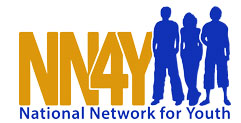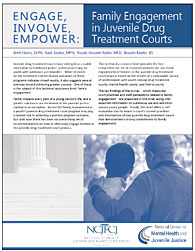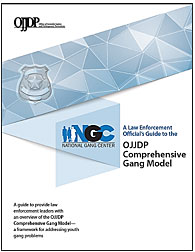OJJDP Mourns the Passing of Dr. Candice Kane
Dr. Candice Kane.
Photo courtesy of Dr. Kane's family.
Dr. Candice “Candi” Kane, retired chief operating officer of the Cure Violence program at the University of Illinois at Chicago, passed away on March 3, 2017.
Dr. Kane was a tireless proponent of the value of data and worked in the 1980s on the OJJDP-funded National Youth Gang Suppression and Intervention program with Dr. Irving Spergel. That program provided the research foundation for the Comprehensive Community-Wide Approach to Gang Prevention, Intervention, and Suppression Program (Comprehensive Gang Model). In 1988, Dr. Kane and Dr. Spergel surveyed 254 respondents in 45 communities across the United States about their anti-gang strategies and those they perceived to be most effective. Dr. Kane used that database to coauthor 12 guidance manuals for communities implementing Dr. Spergel’s model.
Dr. Kane was also a trailblazer in the areas of victims’ rights and criminal justice. She worked diligently to establish service delivery standards for sexual assault centers and was the first to secure Victims of Crime Act funds to employ advocates and counselors for survivors at rape crisis centers and domestic violence shelters nationwide. In the mid-1980s, she became the first Illinois Coalition Against Sexual Assault grants manager at the Illinois Criminal Justice Information Authority, and, through successive positions as associate director and executive director, she became a distinguished criminal justice policy expert.
“OJJDP and the field of juvenile justice have lost a passionate and visionary colleague,” said OJJDP Acting Administrator Eileen M. Garry. “Candi committed many decades of her career to helping system-involved youth and their families from rural Oklahoma to inner-city Chicago, and advocated for compassion in the work to help victims heal. To this day, we benefit from her life’s work. She will be truly missed.”
OJJDP Participates in National Summit on Youth Homelessness
On March 13–14, 2017, the National Network for Youth (NN4Y) hosted its annual National Summit on Youth Homelessness in Washington, DC. OJJDP Senior Policy Advisor, Dr. Sanzanna Dean, attended the event’s federal agency roundtable discussion alongside representatives of the Departments of Education, Health and Human Services, Housing and Urban Development, and Labor, and the U.S. Interagency Council on Homelessness.
NN4Y brings together federal agency staff to discuss each agency’s role in ending youth homelessness. Participating agencies describe and respond to questions about their current efforts and make at least one new commitment for the upcoming year to support young people experiencing homelessness.
Dr. Dean noted that OJJDP fulfilled its 2016 commitment to conduct a literature review on the incidence of labor trafficking among youth; the review available is now online. She also highlighted several Department of Justice and OJJDP-supported efforts to address youth homelessness, including:
- OJJDP’s work with the Bureau of Justice Statistics to add questions to the National Survey of Youth in Custody that will strengthen national statistics on homeless youth upon entry and exit from juvenile residential placement facilities.
- OJJDP’s promotion of developmentally appropriate approaches to improve reentry strategies. Specific models are available through OJJDP’s Model Programs Guide.
- OJJDP’s launch of the Smart on Juvenile Justice Reducing Out-of-Home Placement grant program to help prevent youth from entering the juvenile justice system for low-level offenses.
Dr. Dean communicated OJJDP’s continued commitment to support efforts to address youth homelessness. In 2017, the Department of Justice—through OJJDP—commits to continued collaborations with federal partners to improve information dissemination with juvenile justice stakeholders on the incidence of youth homelessness.

OJJDP-Funded Brief Provides Resources for Juvenile Drug Treatment Courts
The National Center for Mental Health and Juvenile Justice has released the OJJDP-funded brief, Engage, Involve, Empower: Family Engagement in Juvenile Drug Treatment Courts in partnership with the National Council of Juvenile and Family Court Judges. The publication is based on the results of a nationwide survey of juvenile drug treatment courts, juvenile mental health courts, and hybrid juvenile treatment courts and provides recommendations for successful family engagement within a juvenile drug treatment court program. The brief also includes a tool to assess a court’s current practices and highlights two juvenile drug treatment courts that demonstrate a strong commitment to family engagement.
Download Engage, Involve, Empower: Family Engagement in Juvenile Drug Treatment Courts, and learn more about OJJDP’s Juvenile Drug Treatment Court Guidelines.
Law Enforcement Guide to OJJDP’s Comprehensive Gang Model Available
 The OJJDP-supported National Gang Center has published A Law Enforcement Official's Guide to the OJJDP Comprehensive Gang Model. The guide provides law enforcement personnel with an overview of the OJJDP Comprehensive Gang Model, an evidence-based framework for preventing and reducing youth gang violence.
The OJJDP-supported National Gang Center has published A Law Enforcement Official's Guide to the OJJDP Comprehensive Gang Model. The guide provides law enforcement personnel with an overview of the OJJDP Comprehensive Gang Model, an evidence-based framework for preventing and reducing youth gang violence.
The publication includes information on the model's five core strategies—community mobilization, opportunities provision, social intervention, suppression, and organizational change and development—which offer a collaborative approach to addressing gang violence. The guide also explains the benefits to law enforcement agencies of implementing the model within their communities and outlines the essential steps for successful implementation.
Download A Law Enforcement Official's Guide to the OJJDP Comprehensive Gang Model.
National Institute of Justice Examines Teen Dating Violence Survey Findings
The National Institute of Justice (NIJ) article, A National Survey Shines a Light on the Nature and Scope of Teen Dating Violence, examines results from the NIJ-funded study, The National Survey of Teen Relationships and Intimate Violence. The study found that approximately two-thirds of youth (ages 12–18) who were in a relationship or had been in one in the past year reported they had been victimized (69 percent) or had perpetrated violence (63 percent). Psychological abuse was the most common type of victimization reported (more than 60 percent), but there were also substantial rates of sexual abuse (18 percent) and physical abuse (18 percent).
NIJ funded the National Opinion Research Center at the University of Chicago to conduct the study to understand the prevalence of teen dating violence, the characteristics of abusive relationships, and the risk factors for abuse.
Access the article, A National Survey Shines a Light on the Nature and Scope of Teen Dating Violence.
